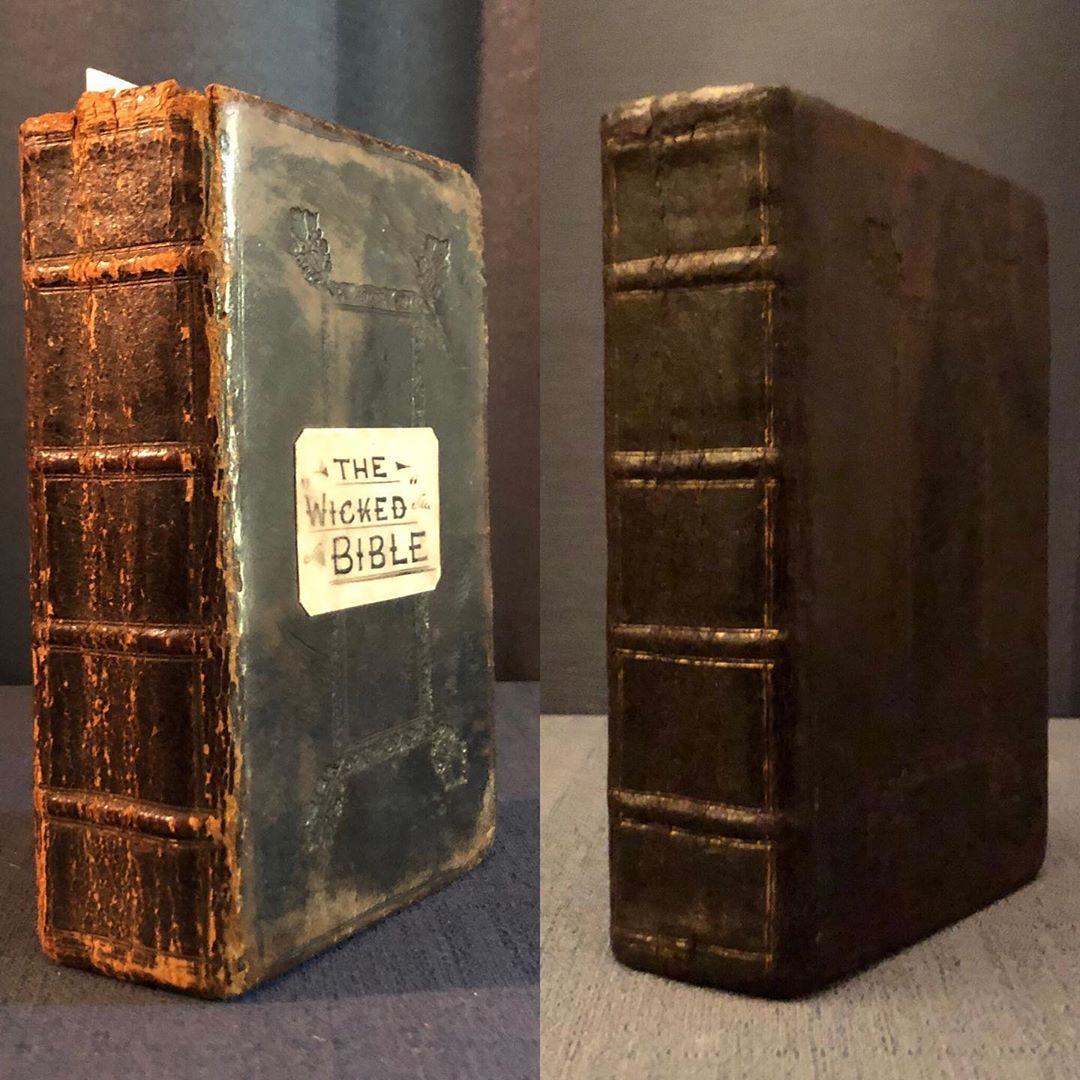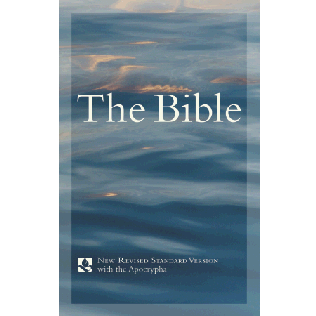excreationist
Married mouth-breather
When I was in a mental ward in 2019 I was reading the ward's Gideon's Bible.... I was trying to get "God" to curse me (to "prove" that people were trying to poison me) by reading it upside down. A day or two later I received a sealed NIV Bible from my sisters that was printed upside down... see:
I see that as evidence of the presence of an intelligent force though I think most of the Bible isn't historical.
Anyway it was a 2011 edition NIV Bible. That is the same version that my church uses - even for their large print versions. My version had red text for the words of Jesus.... but the start of John 8 is in black italics... in my Bible and the church's it says this at the top:
[The earliest manuscripts and many other ancient witnesses do not have John 7:53—8:11. A few manuscripts include these verses, wholly or in part, after John 7:36, John 21:25, Luke 21:38 or Luke 24:53.]
So it is saying that Jesus probably didn't say that.
For 1 John 5:7-8 it says:
For there are three that testify: the Spirit, the water and the blood; and the three are in agreement
The footnote says:
1 John 5:8 Late manuscripts of the Vulgate testify in heaven: the Father, the Word and the Holy Spirit, and these three are one. 8 And there are three that testify on earth: the (not found in any Greek manuscript before the fourteenth century)
On the other hand the KJV says:
For there are three that bear record in heaven, the Father, the Word, and the Holy Ghost: and these three are one.
Some fundies like how the KJV supports the doctrine of the trinity....
There is a subset of the NIV called the NIrV - the New International Reader's Version.... I like how it uses plainer language. As a test of the accuracy consider Ezekiel 23:20:
There she had longed for her lovers. Their private parts seemed as big as those of donkeys. And their flow of semen appeared to be as much as that of horses.
As opposed to the Contemporary English Version: (called "The Good News Bible" in Australia)
She eagerly wanted to go to bed with Egyptian men, who were famous for their sexual powers.
The KJV:
For she doted upon their paramours, whose flesh is as the flesh of asses, and whose issue is like the issue of horses.
Some Bible versions, like the KJV/NKJV, keep the original word order of the Hebrew/Greek/etc but the NIV doesn't. Some versions paraphrase the words and some go to the extremes like "the Message" where they sometimes don't even keep the verses in the same order.
I see that as evidence of the presence of an intelligent force though I think most of the Bible isn't historical.
Anyway it was a 2011 edition NIV Bible. That is the same version that my church uses - even for their large print versions. My version had red text for the words of Jesus.... but the start of John 8 is in black italics... in my Bible and the church's it says this at the top:
[The earliest manuscripts and many other ancient witnesses do not have John 7:53—8:11. A few manuscripts include these verses, wholly or in part, after John 7:36, John 21:25, Luke 21:38 or Luke 24:53.]
So it is saying that Jesus probably didn't say that.
For 1 John 5:7-8 it says:
For there are three that testify: the Spirit, the water and the blood; and the three are in agreement
The footnote says:
1 John 5:8 Late manuscripts of the Vulgate testify in heaven: the Father, the Word and the Holy Spirit, and these three are one. 8 And there are three that testify on earth: the (not found in any Greek manuscript before the fourteenth century)
On the other hand the KJV says:
For there are three that bear record in heaven, the Father, the Word, and the Holy Ghost: and these three are one.
Some fundies like how the KJV supports the doctrine of the trinity....
There is a subset of the NIV called the NIrV - the New International Reader's Version.... I like how it uses plainer language. As a test of the accuracy consider Ezekiel 23:20:
There she had longed for her lovers. Their private parts seemed as big as those of donkeys. And their flow of semen appeared to be as much as that of horses.
As opposed to the Contemporary English Version: (called "The Good News Bible" in Australia)
She eagerly wanted to go to bed with Egyptian men, who were famous for their sexual powers.
The KJV:
For she doted upon their paramours, whose flesh is as the flesh of asses, and whose issue is like the issue of horses.
Some Bible versions, like the KJV/NKJV, keep the original word order of the Hebrew/Greek/etc but the NIV doesn't. Some versions paraphrase the words and some go to the extremes like "the Message" where they sometimes don't even keep the verses in the same order.




